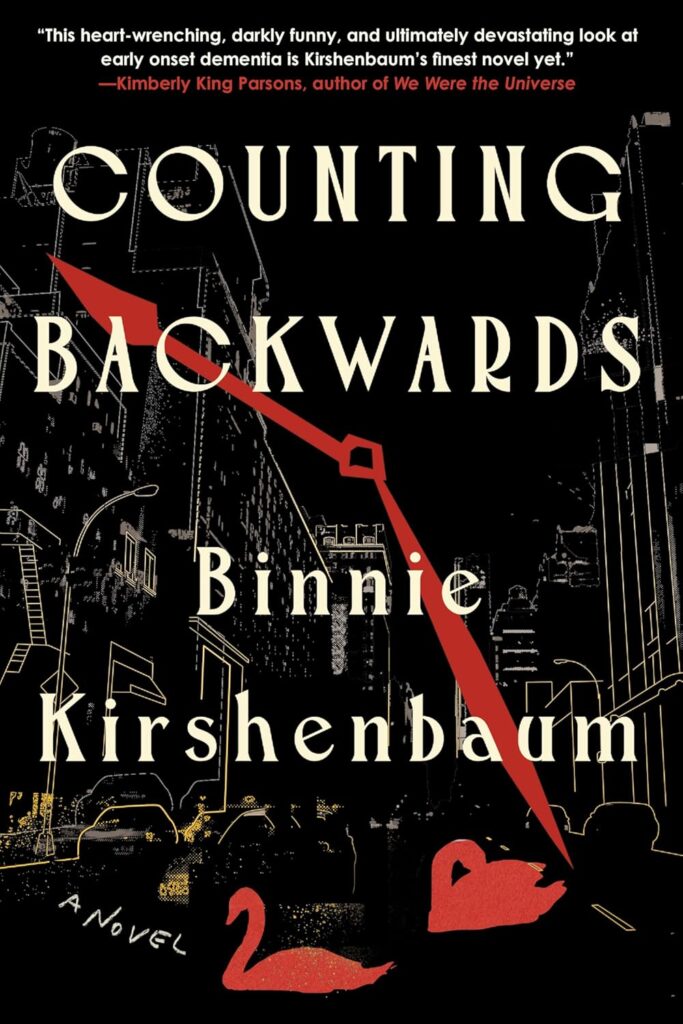I came to Counting Backwards with a complicated kind of curiosity—equal parts hope, unease, and the faint echo of memory (mine, collective, borrowed from the women who came before me and fictional ones who haunt the pages of American literature, calling out to be believed). I kept hearing about this book—a dual-timeline narrative that grips, accuses, consoles, and does not flinch—and wondered if it would pierce the veneer of detachment I wear like some worn-out raincoat. This review isn’t a sales pitch or a summary. It’s what Counting Backwards did to me: the mix of rage, empathy, and oddly, hope, that persisted long after I put it down.
Table of Contents
About the Author and Book
Jacqueline Friedland wrote Counting Backwards. She’s a lawyer, but not the stuffy sort that makes you want to run for the hills—her fiction brims with legal know-how while refusing to suffocate you with jargon. (She knows her stuff: degrees, credentials, a move through law into fiction, the usual story of a life re-routed by empathy.)
This book—published in 2024, still reeling in the messy aftermath of a world fatigued by injustice—refuses to let a century-old atrocity gather dust. Friedland doesn’t just tell you about the past (specifically Buck v. Bell, a 1927 Supreme Court ruling that allowed forced sterilization under eugenics laws). She glues the past to your fingertips, making sure you can’t turn a page without thinking of its present—where abuse and indifference still hide in legalese and cold hospital rooms.
Genre? Historical fiction, but with a dose of legal thriller, advocacy, and a heart so bruised it feels almost alive. The dual timeline moves from the real-life Carrie Buck in the 1920s, marked by brutal state violence, to Jessa Gidney, a modern corporate lawyer with a stalled career and a marriage running on empty, who investigates horrors at an ICE detention center—shadows of the old cruelty lingering into the headlines.
Counting Backwards hit with a stack of positive critical attention, including a thoughtful review in the New York Times that called it a “gutsy, funny, heart-wrenching novel.” Even the critics seemed rattled, their praise tinged with the discomfort of remembrance.
My Review of Counting Backwards
From the start, Friedland’s prose cuts with calm. She resists melodrama, which makes the truths she exposes burn even colder. Every scene in Counting Backwards looks plain on the surface—ordinary objects, hospital linoleum, nervous glances across a courtroom—but the real story thrums underneath. She knows what she’s describing, with a legal brain that keeps the plot sharp and a novelist’s heart that lets the wounds breathe.
Her narrative style? I’d call it quietly relentless. Long stretches feel almost documentary-like in their attention to the paperwork and policies that make up systemic cruelty. Yet these sections are punctured by moments so human it aches—a mother’s hope, a daughter’s resignation, a lawyer’s late-night panic attacks. There’s no cartoon villain here, only people, structures, and the inertia of cruelty that nobody wants to claim.
Pacing is a strange thing. Some chapters read slow, like crawling through mud—by design, I think, as if forcing you to sit with the discomfort and history’s slow grind. Other scenes—a discovery in the detention center, a courtroom reveal, an emotional unraveling—slingshot you forward, gasping, hoping for catharsis that never completely comes.
The characters felt real even in their mistakes. Jessa, brittle and ambitious and sometimes desperately unlikeable, and Carrie, who mostly just wants to survive—both stumble, rage, and question their own place in the story. This emotional rawness reminded me of the anxiety and unease I felt reading books like Dead Money—another recent favorite of mine (and reviewed at length in this Dead Money novel review), which also refuses to give easy answers or comfortable moral ground.
Counting Backwards is not flawless. Sometimes the dual timelines tangle—a confusion of echoes, names, and legal precedents. But, honestly, maybe that’s the point. Trauma isn’t neat, and neither are the stories we have to tell about it.
Key Themes and Takeaways
What jumps out—what lingers after—is not just the horror of forced sterilization or institutional violence, but the way history coils into the present, tightening and loosening without ever disappearing. Friedland doesn’t want you to ponder the past from a safe distance. She draws the through-line from Buck v. Bell to the cold metal beds of ICE detention centers in 2022.
Reproductive justice. Autonomy. Complicity. Legal accountability. These are the book’s building blocks, its heavy stones. Friedland nudges you to ask: How much progress have we really made, when the mechanisms (the forms, the justifications, the people who look away) remain so familiar?
Empirical evidence grounds her storytelling. Over 70,000 people were forcibly sterilized in the United States under the eugenics movement. In some states? It lasted through the 1970s. But this isn’t just history class—Counting Backwards exposes how these abuses repeat. For readers following today’s debates on reproductive rights and systemic racism, the book amplifies the necessity—no, the obligation—to remember and act.
Standout Moments and Favorite Elements
Some scenes hit with the force of a breaking wave, knocking the breath from my chest. Jessa’s confrontation with a detainee whose trauma refuses to stay neatly categorized; Carrie’s numb acceptance of her fate, then her sudden, quiet anger. I could feel the clay under a potter’s hands almost, simplicity shaped by pressure.
Standout lines blur fact and reflection: a woman realizing, for the first time, that her pain is not an accident but engineered; a lawyer tracing her own culpability back through paperwork and policy to her family’s unresolved, generational wounds. The structure, with its staccato back-and-forth chapters, sometimes frustrated, but it mimicked the experience of trauma—unresolved, intrusive, cyclical.
Friedland’s restraint—her refusal to spill emotion where outrage should live—lets the book’s message hit harder. Some books want you to cry. This one wants you to remember.
Other Reads to Explore
If Counting Backwards put a knot in your chest—the kind you know will not untie by morning—there are others that might keep you thinking (and sometimes, oddly enough, laughing, crying, questioning your own memories). One I still think about is Dead Money. It digs into the psychology of self-destruction and low-key existential dread, but in an entirely different narrative register. For more on that, I’ve written at length in this Dead Money novel review.
For those seeking a wider reading list—across eras, genres, and tangled legal histories—check out the collection of 12 must-read literary titles. Reading is a way of thinking in public, of joining a conversation you didn’t start but absolutely need to finish.
Conclusion
Counting Backwards is not a gentle story. It’s a book that grabs, shakes, and then, just when you think you can slide back into comfort, whispers, “Not yet. Remember.” I recommend it if you want fiction that is unafraid to indict, to mourn, and—occasionally—to let in a slant of hope.
I’m left turning the title over in my hands, two words that sound so simple. To count backwards is to remember, to undo, to travel in time in the hope of understanding. Friedland won’t let you look away, and for that I’m grateful. Anyone who cares about justice, memory, or how the past seeps through the cracks of now—this one’s for you. And for everyone who’s ever loved someone shaped by decisions made before they were even born.

